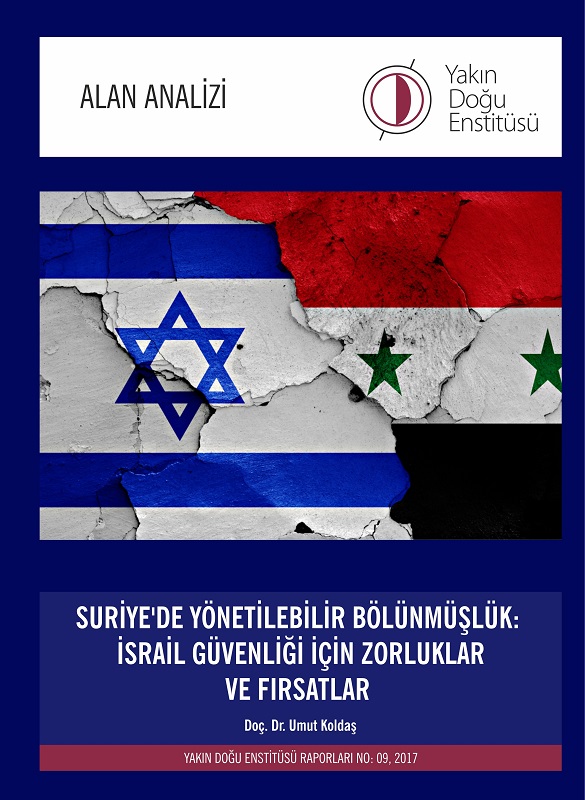
The analysis report prepared by the Director of Near East Institute and Israeli expert Assoc. Prof. Dr. Umut Koldaş explores the effectiveness and future of Israel's security policies in the reconstructed Syria from the Israeli perspective.
According to a statement made by the Press and Public Relations Directorate of the Near East University, Near East University Publications published a new report as part of the Near East Institute Reports Series, edited by the Director of Near East Institute Assoc. Dr. Umut Koldaş, Near East Institute Advisor Ercan Çitlioğlu and Near East Institute Scientific Publications Coordinator, Dr. Mustafa Çıraklı. The report focuses on Israel's security interests, priorities and concerns in the context of the crisis in Syria, and local, regional and international dynamics are evaluated with reference to the historical background of Israeli Syrian relations in the context of the Syrian Crisis. Israel's security interests in the context of the Syrian Crisis, the historical background of Israel's Syrian relations in the context of the Syrian Crisis, and the historical background of Israel's foreign policy in the context of the Syrian Crisis are also reviewed. Israel's relations with Iran, USA, Russia, and China in the context of the Syrian Crisis, Israel's possible role in the Syrian crisis and security priorities in the context of Syria and Israel the subject of future scenario in Syria is examined.

Assoc. Prof. Dr. Koldaş: A Manageable Partition in Syria presents Great Opportunities for Israel's Security.
Assoc. Prof. Dr. Umut Koldaş, the Director of the Near East Institute and the writer of the report pointed out that the recent developments and conflicts in the Arab world triggered the socio-economic, political and cultural restructuring process in the region. Assoc. Prof. Dr. Umut Koldaş underlined that the structural and intra-structural transformations that took place in the region have had profound effects that would lead to a kind of rebuilding of countries like the coasts of the Mediterranean like Syria. As discussed in detail in the report, Koldaş emphasized that these developments, which could cause extreme changes in the context of Syria's future, are of great importance to this country in terms of foreign policy priorities and security concerns for the whole region. Regarding the current phase of the Syrian crisis, Koldaş said "In the Israeli security structure, the best case scenario for Israeli security interests appears to be the continuation of the "manageable partition" of the power centers in the Syrian conflict, despite the enthusiastic appeals of the circumstances. Israel is analyzing the power, interests and security matrices between these centers in a very good way and trying to ensure that these centers do not focus on their own struggles and not attack Israel. Because these groups are not an existential threat to Israel insofar as they are engaged in a continuing power struggle within Syria. In this sense, Israel is supporting the division of radical groups and preventing the emergence of a radical anti-Israeli bloc. "
Koldaş: Chaotic Decentralization of Syria's Difficulties Difficult to Manage Crisis in Israeli Security Interests.
Koldaş pointed out that Israel played a role in this structure as an important actor in a period when a significant rebuilding and transformation process was taking place in Syria and emphasized that the fact that the partition in Syria becoming uncontrollable would affect Israel as well as every country that has security interests in the region. "Even though the division among radical groups seems beneficial in short and medium term for Israel, chaotic decentralization of these groups and their continued existence as self-organized, violent cell-structured organizations can make it difficult for them to manage the crisis in the direction of Israeli security interests. For this reason, Israel will prefer to maintain its existence as one of the balance elements of the manageable division of the country until the formation of an alternative administrative structure that can be implemented in Syria in the context of its own security interests and priorities. In the process of restructuring the Middle East, one of the main priorities of Israel, especially in the short term, will try to make a manageable partition in Syria permanent. "